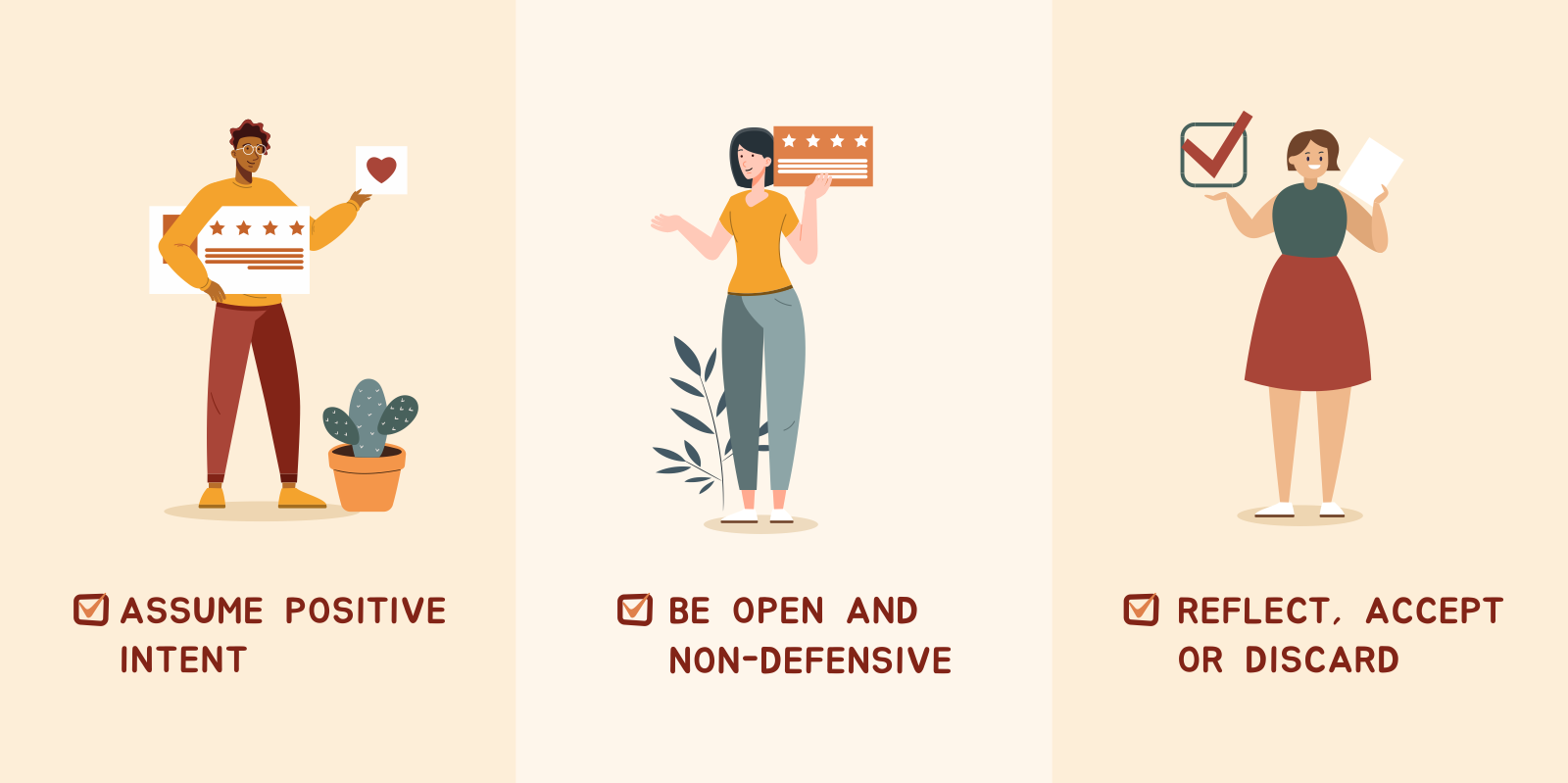Embracing feedback

This might be counterintuitive, but the receiver is in charge of feedback. They’re the one who decides what to listen to and how to make sense of it. That is why it is important for everyone to learn how to react to feedback. When you’re receiving praise, that’s usually easy; however, it might be hard to hold on your knee-jerk reaction and reject criticism. Try to do the following:
- Assume positive intent. It might be hard for your coach to choose the right words to describe behaviors, feelings or thoughts, but feedback is an extra-effort aimed at helping you improve your work or your professional relationships. If you do have to explain yourself, try to remain empathetic. Remember that it is not you in the focus, but your work. Feedback is not an assessment of you as a person, but of your behavior and specific tasks.
- Be open and non-defensive. Each time you listen to someone sharing their thoughts, imagine they are right. Try to be impartial and try to understand the opinion of the person you are talking to. To make sure you understand them correctly, try active listening and ask for details. To master active listening skills, try these guidelines.
- Reflect, accept or discard. Take time to consider what you’ve heard and think of an action. Feedback is often subjective, and you are not required to follow it. Say “thank you” with sincerity and, if you are in doubt about further action, elicit feedback on the matter from other people.
If you master the art of receiving feedback, you can accelerate your own development. Find more tips in this article.
Couldn’t help being defensive?
Events are neither negative nor positive. Your belief about how the event affects you is what matters. When you view a situation as an attack, you will become defensive, which may cause negative consequences.
ABC model
When someone states something that causes you to arch your back and want to become defensive, take a moment to work through the ABC model. Answer the following questions to challenge your negative thoughts and create new behaviors.
A - Activating event: What is the situation?
B - Beliefs: How does your mind respond to the situation? What are some constructive beliefs/thoughts to have about the situation?
C - Consequences: These include your feelings and behaviors. How can you use your current constructive thoughts to create positive feelings/behaviors?
If you have questions about the ABC model, take a look at this example.
Circle of control
Another way to deal with such situations is to focus on aspects that you can control.
| Aspects that are in your control | Aspects that are not in your control |
|---|---|
| Your words | What other people state |
| Your actions | What other people do |
| The way you handle your feelings; how you take care of yourself | Other people’s feelings |
| Your decisions; whether you follow the rules | Other people’s choices |
| The amount of effort you invest | Past events |
| How you treat others | Weather |
Only you decide if you’d like to accept or reject suggested feedback. The form that feedback comes in is important too. If you wonder how to formulate your feedback effectively yet softly, see “Feedback” tag.
